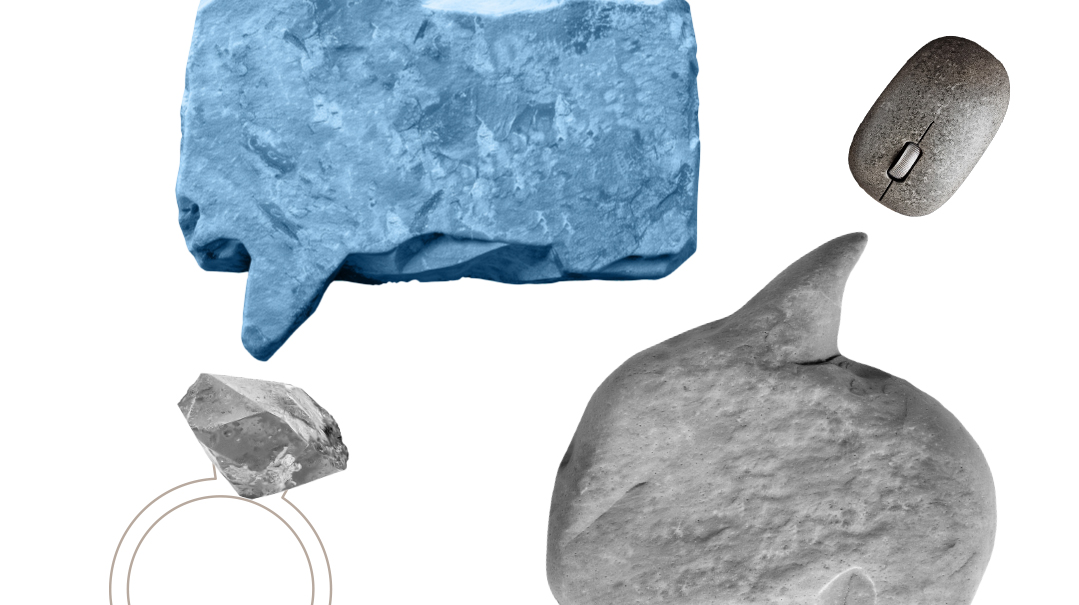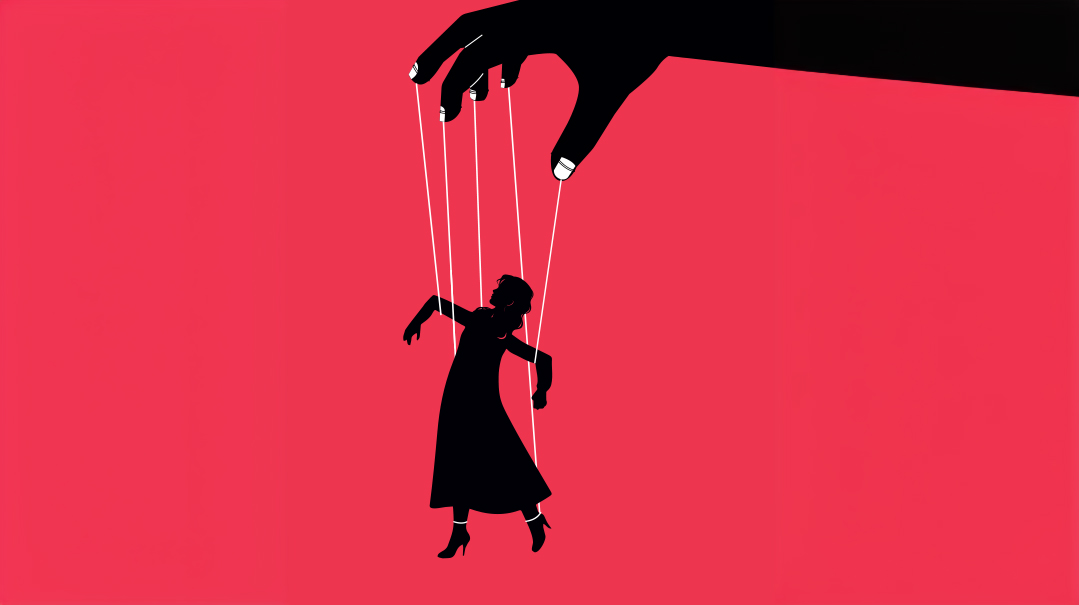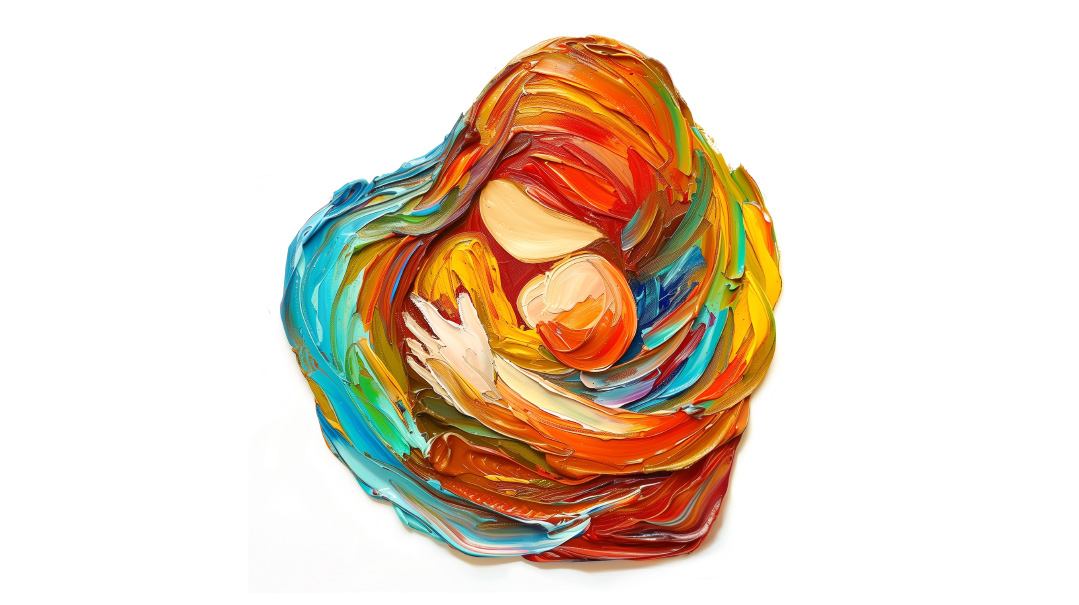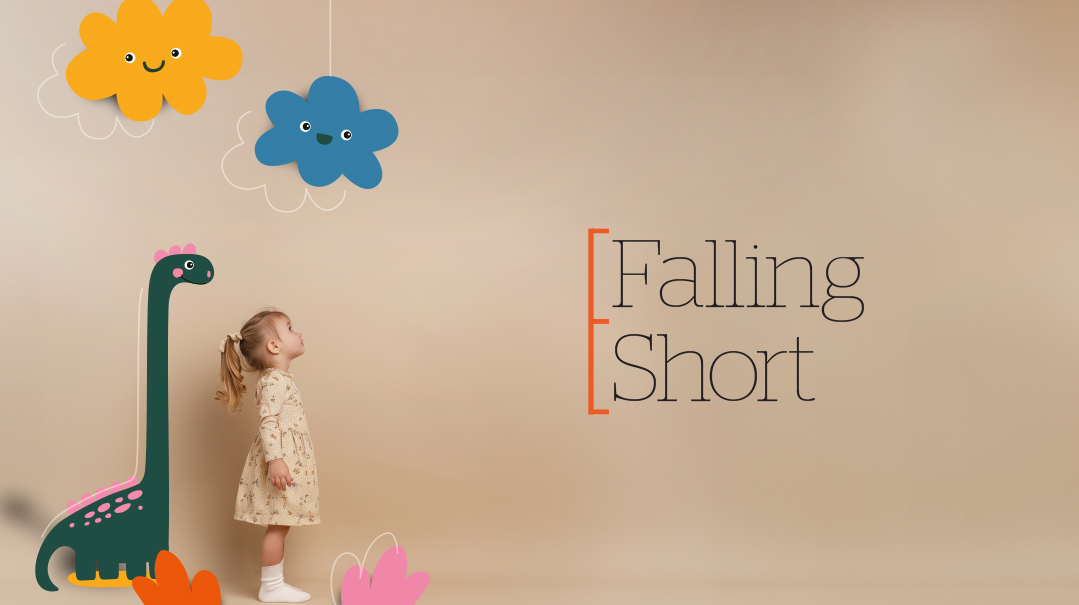Forever High School
| April 30, 2024Why those four years leave an imprint we can't shake. A look at the science and psychology of high school
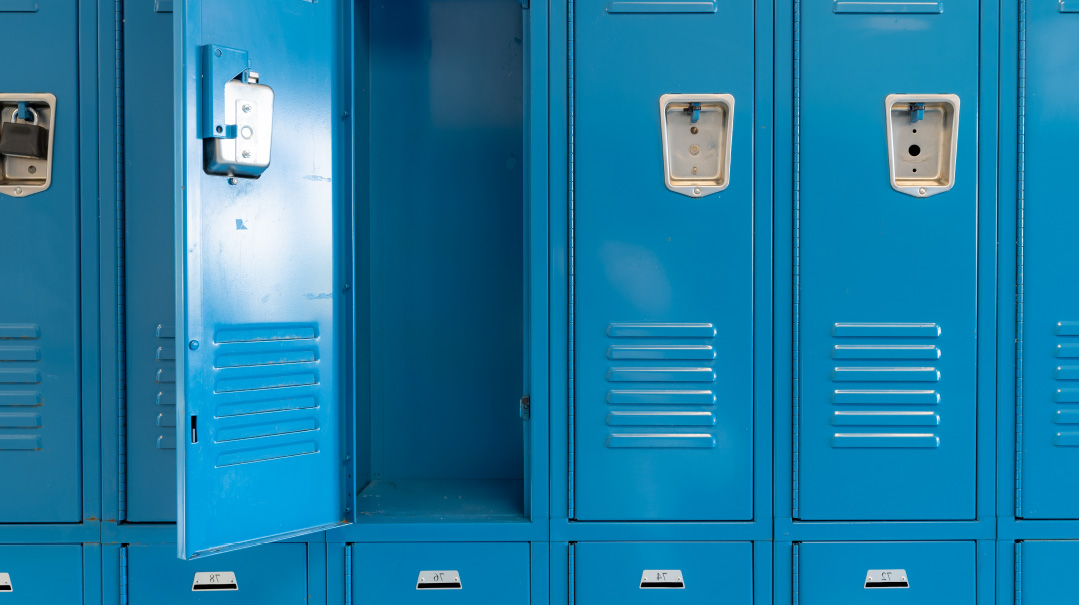
WE decided to have some fun, Dasi and I. A non-Jewish teacher who had taught us eight years ago in high school had gotten engaged, and we were going to get a kick out of it.
Bnos Chaviva High School Chat Group
Gila: MAZEL TOV on the latest shidduch!
Dasi: Oh my, mazel tov! LOL!
Silence reigned on the chat of 83 members.
Gila: It’s SUCH a nice simchah, and such an out-of-the-box shidduch (party emoji)
Dasi: And after all these years… Wow!
Dasi and I, sitting in the staffroom where we both worked, looked at each other. We could feel the curiosity simmering, but still, silence.
Within seconds, however, both our phones and private chats began to ping.
Elisheva: Hi Gila! Haven’t spoken in ages! Just wondering — who got engaged?
Rus: Gila! What’s going on? Who got engaged???
Sara: HEYYY WHO?
Nothing, though, on the Bnos Chaviva High School Chat. It was intriguing, and mildly maddening, too. Why don’t you ask me on the chat?!” I PM’d to Sara.
Her response: Are you kidding? I wouldn’t write on our class group, of all things! Just say!
In the end, her curiosity won out, because she managed a pareve, Who got engaged? and didn’t dare emerge again when Dasi wrote the news, and everyone answered with polite “mazel tovs.”
Eighty-three listeners may make a chat awkward to respond to. But there was something else up here, more than just regular hesitancy.
And why was I left a little breathless from this back and forth? As though I had somehow staged a little rebellion by writing on our class chat?
What is it about high school peers that can make confident, normal, stable 30-year-olds revert to insecurity? I knew then, more consciously than ever, that there was something more powerful to high school than just four years of schooling. And I was determined to find out exactly what that was.
“The first 20 years are the longest half of your life, no matter how long you might live.”
— English Poet Robert Southey
H
igh school has a bigger impact on the rest of an individual’s life than we think. “These four years are critical periods of development for the adult self, in the same way that speech and motor skills are critical in early childhood,” says Mrs. Penina Teitelbaum, principal of HSBY, Chicago, and noted mechaneches. “If we don’t hit those milestones then, they’re much harder to reach and they take longer to integrate, and that has many implications.”
The social and emotional milestones of high school include the capacity to build and maintain close relationships, self-awareness, other-awareness on an adult level (including real empathy), and communication skills (both in terms of self-expression and the ability to work through disagreements and hurt feelings with a peer).
“There are also spiritual milestones, as this is a key stage in developing a relationship with Hashem that’s authentic, positive, personal, and sustainable,” says Mrs. Teitelbaum. “Maintaining a punitive or distant perspective on Hashem’s engagement with a person’s life and the world will not serve them long-term.”
Scientifically, memory researchers have identified something called “The Reminiscence Bump,” which confirms that the strongest memories for the events in our lives come from things that happened to us between the ages of 10 and 30, with most studies suggesting that memories from the ages of 15 to 25 are most powerful. Perhaps this is because the brain stores memories better when our identity is undergoing change than in times of stability.
And there’s some real scientific stuff behind that teenage brain. The prefrontal cortex — the part of the brain that controls our ability to reason, grasp abstractions, control impulses, and self-reflect — doesn’t finish developing until we reach our mid-twenties. So, throughout high school, the more primitive, emotional parts of the brain (the “limbic system”) have a more significant influence. This explains why teens are so dramatic and can have a harder time with self-regulation.
In early adolescence, your prefrontal cortex undergoes major change to help you form an adult identity. At this time, anything your brain is exposed to makes a strong impression, because it’s being perceived discerningly and meta-cognitively as something to absorb or reject from your core self-identity.
During the years from teenage to adulthood, the brain is flooded with higher levels of dopamine activity than at any other time in life, so everything an adolescent feels — and subsequently does — is just a little bit more intense.
For many people, the longest, most emotionally charged and vivid of these transitional years were spent in high school. In those long hallways with lockers running along the wall, behind those wooden desks and plastic chairs, amid endless note-taking and DMCs, that’s where the brain was shaped, and where an individual’s perception of the world and sense of identity was formed.
“Everything can impact an individual. A singular moment of trauma or profound connection can alter someone. Now take those moments, and multiply them every day for four years, compounded by social dynamics, teacher dynamics, family dynamics, and then add in brain and body maturation, and high school is going to have a significant impact,” says Abby Delouya, RMFT-CCC, CPTT, a licensed marriage and individual therapist with a specialty in childhood trauma and addiction.
On that point, Mrs. Teitelbaum adds: “I once heard Rav Noach Orlowek say that self-esteem is about self-efficacy — a child’s belief in their own ability to succeed, accomplish, and overcome. A high school girl’s academic successes or failures, her ability to build and maintain authentic and meaningful relationships with others, and her perception of herself and her own self-efficacy will stay with her into and likely throughout her adult life.”
Dr. Mitch Prinstein is a clinical child and adolescent psychologist and the author of a new book, Popular: The Power of Likeability in a Status-Obsessed World. He writes about how our brains are molded by teenage interactions, putting it bluntly, “Our adult brains began to form to help us survive in the hallways of high school. The problem is, we left high school long ago — and our brains never got the memo.” That means that although it may only be four short years of your life, high school pretty much lingers with you forever.
“The people you knew in high school remain your default group for engaging in social comparison.”
— Professor of Psychology Frank McAndrew
P
art of how you build an identity is through other people, and that explains why high school peers play such a pivotal role in the formation of our adult identity. “We exist in relation to others, so it’s natural to compare our talents, intellectual capacity, and social aptitude to those of others,” says Mrs. Delouya.
Unfortunately, self-worth can easily get warped because teenagers, who are highly influenced by peers, end up viewing themselves based on how they measure up to their peers in their little high school bubble. “Discussions and modeling can be subtle — talking about others’ accomplishments, vacations, wealth, or social status — and can teach kids not only a value system, but an expectation of how self-worth gets intertwined with success,” Mrs. Delouya says.
Schools can try to combat this constant yardsticking, but as Mrs. Teitelbaum says, “We can talk about how much we value middos, we can put on productions, we can give all kinds of awards, but knowing that you are failing in the classroom when your friends are succeeding, over and over and over again, is devastating to a student.”
Self-image developed during those years is especially adhesive. “I was never chosen for choir in school. And until today, I believe I cannot sing, even though my singing is not bad. So I’m told,” Dina hurries to add. “There were the elite girls who always got the choir positions and solos and were in the singing spotlight. The rest of us wouldn’t dare believe we could actually sing, too.”
You were that kid who was always on the sidelines? It’s a feeling you can’t easily shake off, even in social settings years later. The intelligent, nose-in-the-book nerd? You might still feel the isolation during social events, years past the academic setting.
“Even if an adult thinks they outgrew their problematic behavior in high school and now have a great job and a family, they are usually still hindered by their experience as a teenager,” writes Dr. Prinstein. “The thing that’s interesting is that if you speak with those who have those impressive résumés who may not have been so likable and may have had some difficulties with their popularity as kids, they still feel insecure, no matter how many achievements they accrue professionally. They still feel a sense of inferiority, a concern about being rejected by others, a hyperfocus on potential rejection signals.”
Dr. Shira Kessler is a psychotherapist who specializes in emerging adulthood, working with young adults between the ages of 18 and 30. “When clients come to my office at age 25, saying they don’t like themselves, we look at the early days. More often than not, it becomes clear that they never built their own identity. They were so preoccupied with conforming to social pressure that there was little room for self-reflection and personal growth.”
She gives a classic example of how peer pressure impacts identity formation, “Dance was the coolest thing in my day. If you weren’t in dance, you weren’t cool. Now what if you were someone who couldn’t dance, but could sing beautifully? You might never develop your singing simply because it’s not ‘cool.’ Due to social pressure, some girls end up moving away from themselves instead of toward themselves.”
Brené Brown, renowned author and research professor at the University of Houston, where she’s spent two decades studying courage, vulnerablility, shame, and empathy, identifies high school as a prime example and source of shame, “Shame is all about unwanted identities and labels. And I would say that for 90 percent of the men and women I’ve interviewed, their unwanted identities and labels started during their tweens and teens.”
“True terror is to wake up one morning and discover that your high-school class is running the country”
— Kurt Vonnegut
Sitting in the park, watching my (innocent, not-yet-high-school affected) kids frolic in the sun, I asked my British neighbor Chaya what she thought of this forever-high-school topic.
“No way!” she replied. “This came up with my high school friend just last week.” She scrolled through her texts and showed me this message from her friend, Leah:
Leah: “OK dunno why I’m obsessed with Royal Family lol. But if there would be a Kate Middleton in our school class — who would it be?”
She stopped scrolling and looked at me. “So for a few moments, I thought back to everyone’s characters and personalities. And then I realized, Hey! One minute. Do you get we’re out of school ten years already?! I haven’t seen or kept up with many of my school classmates in years. We don’t even all live on the same continent. Why do we care so much about them? And that’s exactly what I wrote back to Leah.”
She continued scrolling, and turned her phone to show me Leah’s response.
Leah: “That’s a good question. It’s scary that it’s still lingering in our minds ten years later. What’s wrong with us? (rolling eyes emoji)”
It turns out nothing’s wrong with Leah and Chaya. Or me. Or you. If high school happens in an individual’s most formative years, it only makes sense that people you went through high school with have a remarkable effect on you long after you’ve thrown your graduation hat in the air and walked through those iron school gates.
Hence the silence on Bnos Chaviva High School’s chat. Our class had always been a severely competitive, cliquey one, with heavy social pressures. So I understood why eight years beyond that brown brick structure — with many of us successful in the workplace and most of us already wives and many even mothers — we were still so cautious about speaking up in front of each other.
“[Though] people’s status may change, their internal experience does not,” Dr. Prinstein said in an interview with Business Insider. “The research shows that the ways that our brains are built and developed, we really pull on those old adolescent memories far more often than we realize. Even when we’re processing things in current day.”
Like in Rachel’s case. In high school, Rachel and her friends idolized a certain young teacher who was tall, thin, pretty, creative, and cool. “She lives abroad today, but when she comes home to visit, I sometimes see her around the area, pushing a double stroller with kids hanging off the sides. She is nowhere near as attractive or put together as she was back then, but I still feel small when I see her — my hello is meek and my eye contact fleeting.” Rachel, by the way, is an accomplished, confident, much sought-after fashion designer today, 12 years out of high school. “I’ll often find myself thinking after that meek hello of mine: Rachel, what is wrong with you?!”
The perceptions we form in high school, of ourselves and the world, can be potent and long-lasting. Take Malka, who is 47 years out of high school. She remembers the segregation of her class so strongly, as if she were experiencing it today: “There was the aristocratic, middle, and lower class, and being well-off meant you could afford a good education. In a postwar generation, a good education meant opportunities to build yourself up in the world, and that was everything. Oy, it was so divided, and everyone knew exactly where they belonged according to their family’s financial status.”
Forty-seven years on, the segregation is still felt strongly when those classmates occasionally meet. There are the “upper class,” coiffed, sophisticated women, and the plain, simple, “lower class” women. And until today, the two shall never mix.
Dr. Shira Kessler believes that it’s not just high school itself that influences young adolescents; family life during that time also has a big impact. And then there are camp friends, after-school jobs, friends from other schools, siblings, and events that take place while in high school.
For me, personally, being the youngest at home and that my parents were from the “older generation” had a big impact on my worldview. I didn’t have the cool, with-it mom who knew the younger married teachers or who hit it off instantly with the young teachers at PTA. But I had a deep-seated respect for my older, wise teachers and loved them dearly, as opposed to many of my classmates who thought they were “old” or “nerdy.”
Even more powerful is the way we wire our brains to react to those perceptions we form of ourselves and the world. Until today, I find myself wary of young teachers, rebbetzins, and mechanchos, and love connecting to older people and hearing their life experience and wisdom.
Our high school years are not just memories; they live on in real time. Take Miri, who had an awfully cliquey class in high school. Particularly anxiety-inducing were the class trips her school took every term. “The bus.” Miri shivers, her eyes closed to relive the memories. “The bus ruined nearly every high school trip. And of many girls, if you ask me. All the ‘in’ girls would have their seatmates booked weeks in advance and would own the territory at the back of the bus, talking, laughing, and singing loudly. Some pairs of friends would sit scattered around the bus, and then there were the girls who didn’t really belong anywhere. They would sit reluctantly in any empty seat and hang around in the aisles, in the less-threatening, less-cool areas. I would do the latter, and I always felt like I was laughing forcedly, standing awkwardly at the edges of the bus fun but never really in.”
Recently, Miri had the chance to join a women’s day retreat. “There were so many wonderful women joining, and I knew we would have a great time. But I had this pressure I didn’t even know was still there: the bus. Who will I sit near on the bus?
“I had such a pleasant surprise when I got on, looking around a little awkwardly, and was offered a seat by the first woman on my right. Thankfully, we ended up having a great time together.”
So not only does our high school experience affect us, but those years affect the way we react to things. That may sound frightening. But it only really becomes frightening when we take our teenage perceptions and reactions to the world with us into adulthood and forget to reframe using our now fully developed, adult brains.
“For some of us, high school shines like an enchanted kingdom compared to which every other stage of life falls short. For others, it is remembered as… endless daily torments.”
— Professor of Psychology Frank McAndrew
F
or most of us, high school lies somewhere on the spectrum in between. But still, no one’s reading their high school yearbook without experiencing a range of emotions tingling through their conscious — or sometimes subconscious — brain. And no one’s going to a high school reunion without either intense longing for the good ol’ days, or giving themselves an entire makeover in the mirror before leaving the house and shivering internally before walking in. It’s usually a loaded event.
“I try to skip reunions altogether,” confesses Yitty, who is 13 years out of her Boro Park high school. “I was socially always on the sidelines, didn’t really have any close friends, and didn’t shine academically. I’ve built myself up to be a healthy mother and wife in my home, and that’s my place where I shine. I was gifted with my two closest friends in seminary, and we’re really like a small gang today. High school reunions knock me off my feet and leave me feeling inferior and small all over again.”
For Ruchi, class reunions are comfortable, easy, and filled with warm memories. Her class was a family. She fondly remembers how every day for lunch, each girl brought along a different component for a salad. “One brought this huge packet of lettuce, one came clutching a bag of tomatoes, another fished out a bottle of dressing from her bag,” she says, laughing. After reunions, Ruchi comes home pining for the old days. “I don’t have any sisters, and my classmates were like my sisters for me. I always feel the loneliness again after a reunion.”
So what’s high school to you? Likely an utterly unique and individual experience. It’s the same routine, same schedule, same building, and same uniform as an entire grade of kids, but your internal experience shaped you in a way it didn’t shape anyone else.
It’s where your adult perception of the world, of justice, of people, of yourself was formed; it’s where you learned to love, hate, fear, or be impassive to the people in your life; and it’s where the way you react to things was wired into your brain. It’s where you of today became you. Sounds dramatic, but that’s high school, after all.
So is my fate set in stone? Well, yes. But before I get mobbed, really, but really no. One’s status as a teenager, for better or worse, is a strong indicator of how their adult life will unfold, but it doesn’t have to be permanent. Dr. Prinstein wants people to think about their own experience as an adolescent and, instead of writing it off, to understand it. As he puts it: “When you can come to terms with who you were, you are then able to focus on who you are today.”
Brown says it’s remarkable how many parents of teenagers talk to her about reexperiencing the shame of high school once their own kids start to experience the same familiar scenarios of rejection. “The first time our kids don’t get a seat at the cool table… that is such a shame trigger,” she says. “It’s like a secondary trauma.” So paralyzing, in fact, that she finds parents often can’t even react with compassion. “Most of us don’t say, ‘Hey, it’s okay. I’ve been there.’ We say, ‘I told you to pull your hair back and wear some of those cute clothes I bought you.’ ”
Mrs. Teitelbaum says she once got a call from a parent who was extremely upset about something her daughter had experienced in school, “I sought to understand her perspective, but the incident was minor, the student seemed totally fine, and the negative feelings she ascribed to her daughter didn’t seem to be at all in alignment with her daughter’s temperament and coping styles. I still couldn’t make sense of the vehemence behind the mother’s words, as the rage and anger she was expressing was notably out of proportion to the event. Clarity finally dawned when, upon gently pressing the mother to explain herself, she said, ‘That was my high school experience,’ and burst into gut-wrenching sobs.
“It was doubly painful to witness — first, for the acute pain this woman is still carrying and experiencing, and second, for the difficulties and emotional weight she was dumping on her daughter. In her attempt to protect her daughter from the same experience, she was unwittingly the cause of much unnecessary pain and confusion.”
Mrs. Teitelbaum relates another painful anecdote: “I took over a school at one point in my career, and many women came forward to share their high school experiences, some of which had taken place 20 or 30 years ago. One older woman said, almost desperately, ‘They were wrong. It was a uniform shirt, it had just faded in the wash.’ I wanted to cry for her, for the hurt she was still holding so many years later.”
So what can you do if you had a bad high school experience? “Rebuild yourself,” advises Mrs. Teitelbaum. “Your principal and teachers may have been wonderful, but we are not neviim. They may have only seen a part of you, or may have read you totally wrong. We are only people. Pursue relationships and people who do see and value you. Look for a career or passion that speaks to your strengths and builds you. You may find that the very quality that held you back in high school is an invaluable asset in adulthood.”
She recently saw a clip in which a father taught his son the following about carrying pain and grudges: “Travel light, my son. Travel light.” She advises the same: “If you’re angry, go to therapy to work it through — don’t carry that in your heart, don’t pass it on to your children.”
Mrs. Teitelbaum adds that if it will help, and if you feel ready (or a mental health professional thinks you’re ready), meeting with a former friend or teacher who caused you pain and hearing their take may surprise you — and provide closure.
Dr. Kessler recalls a conversation with a friend who felt anxious about attending a classmate’s wedding because she had a less-than-positive high school experience, “‘You don’t have to see yourself through high school eyes anymore. Remind yourself that you’re no longer that person,’ I told her. ‘I see you as the developed person you are today.’ Sometimes, just saying that to ourselves is enough because we tap into our internal developed adult voice.”
Visual concepts are also helpful. “Imagine you’re walking into that wedding hall with a ‘power backpack’ strapped to you,” Dr. Kessler says. “In there is everything you’ve developed over your years since high school — your strengths, your marriage, the family you’re raising, your career. These are the things behind you, powering you as you walk in.
“Remember, too, that high school currency is not the currency you need in real life, in the real world,” Dr. Kessler adds. “It’s not G.O., chesed, being popular, or whatever school glorifies. Different factors determine your success in your adult life.”
A little self-reflection can also help you move beyond high school. “I got snubbed by the class queen at a simchah, and my first reaction was ouch,” Ahuva remembers. “But simultaneously, I thought, Wow, it’s so interesting that even after 20 years, she feels the need to exert her authority like that, and that I still feel a shrinking feeling inside and want her approval on some level. I wonder why that is?” Ahuva sat with that uncomfortable question and processed it with a few friends so she could move beyond it. “The next time I saw this woman, I wasn’t seeking her approval anymore, so she didn’t even have the ability to snub me.”
Once you understand that you were impacted by high school more deeply than you realize, you can then begin to sort through the perceptions you unwittingly incorporated into your core identity. Then you can consciously choose which to keep or discard in line with who you have grown to become today. You can rewrite the story you learned to tell yourself throughout your high school years, with your adult self being the writer.
(Originally featured in Family First, Issue 891)
Oops! We could not locate your form.

